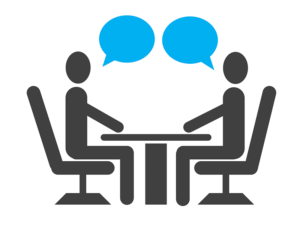When the notion of redundancy comes up, the focus often […]
 You can’t predict exactly what questions are going to come up in a job interview, however, you can prepare answers for some of the more common interview questions. Within an interview you have one chance to tell the hiring manager why you’re interested in the job, what you have achieved in your career to date and what you can contribute to the company if successful. Ensuring you prepare in advance and practice answering and structuring common interview questions will enable you to maximise your chances as well as heighten your confidence throughout the interview process.
You can’t predict exactly what questions are going to come up in a job interview, however, you can prepare answers for some of the more common interview questions. Within an interview you have one chance to tell the hiring manager why you’re interested in the job, what you have achieved in your career to date and what you can contribute to the company if successful. Ensuring you prepare in advance and practice answering and structuring common interview questions will enable you to maximise your chances as well as heighten your confidence throughout the interview process.
What appears a harmless ice-breaker is actually a critical component of your interview. Your answer is often the first opportunity (after body language) to create a positive impression. The interviewer asks this to get a rounded sense of you as a person and how you might fit into the team and organisation. Your interviewer is not looking for a 10 minute speech here. Instead, offer a focussed paragraph or two that sets the stage for further discussion.
How to structure a great answer
Be concise and relevant. Aim for a few paragraphs and make sure your answer is no longer than 2-3 minutes. There are 4 key stages that you can include in your answer:
Remember, they are looking for where you can add value to the company, so sell yourself!
Any potential employer wants to know you have a genuine interest in them as a company and what they do. This is a perfect opportunity to showcase the research you have completed in preparation for the interview, which should include what you understand about their strategy, clients, performance, competitors and challenges.
Use a range of sources to search for information (not just the company website), use reliable online news and trade press sources alongside social media.
Researching the above thoroughly should give you a couple of pages of notes and will give you a great knowledge base to refer to throughout the interview.
The interviewer wants to know what you are good at and how you are going to add value to the company. What are your unique selling points? Think of 2 or 3 strengths that are really important to the role that you are applying for and make sure you say why they are relevant to this role and relate them back to the job description. To strengthen your answer you can structure examples of how you have applied this skill using the STAR technique:
Situation
Task
Action
Results
This is where the interviewer wants to know about your self-awareness and self-perception. Saying you have no weakness can be seen as arrogant. Be honest and provide a weakness that is not a central competency for the role. Identify a weakness that you had in the past and then describe what you did to overcome it and how you developed in that area. This demonstrates the steps you take to develop yourself and helps the employer predict measures you would take in the future if in a similar scenario occurred.
In other words what makes you unique and separates you from the other candidates? You should be ready to give a concise summary of the top reasons to choose you. Think of yourself like a product - why should they buy you? Try to relate your answer to current problems and needs within the company based on the job description with a clear focus on why this makes you unique.
Taking the time to prepare thoroughly before your interview will ensure you perform well on the day. You will need to be able to not only articulate your skills and experience but also sell yourself through your achievements, behaviours and attitudes. Role playing or practicing your answers out loud, really will improve how effectively and convincingly you answer questions on the day. The interview is where you will win or lose the role, so make sure you are ready to go in there and shine.
Remember the 5 Ps – Proper Preparation Prevents Poor Performance!
Renovo is one of the UK’s leading providers of outplacement and career transition support. We work with both organisations and individuals to support all their career transition requirements. Whether you need help with your CV, building an effective LinkedIn profile, or if you would like to know how Renovo can help you answer common interview questions, please call 0800 612 2011 or email info@renovo.co.uk.
When the notion of redundancy comes up, the focus often […]
Networking is often one of the most underutilised tools of […]
Employees face a retirement planning picture that is far more […]